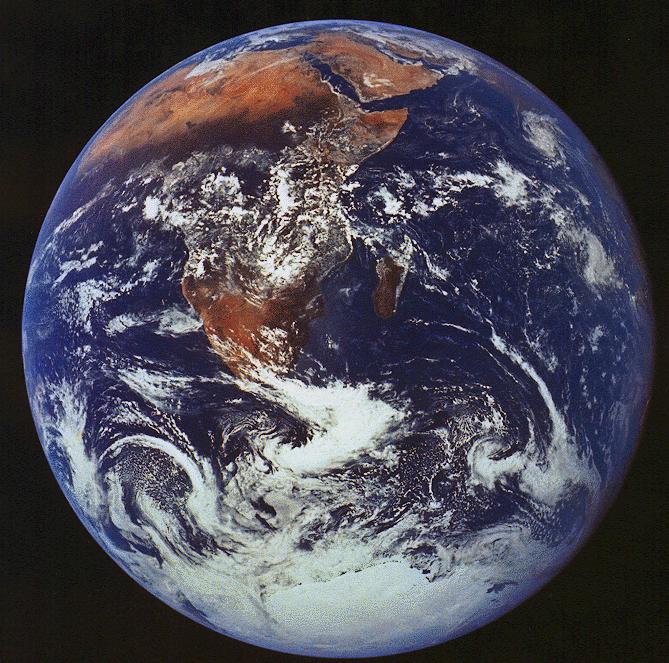
PERPETUAL PEACE
through PLANETIZATION
THE OTHER
CHOICE AND SYSTEM FOR THE PLANET
A Holistic Common Sense Structure for
the
Liberation of All
without War Through the New Foundation for the New World Vision
Humans * Animals * Environment * A Unity in Diversity Honoring the Truth of
The Oneness of All Life through Compassion, Humanity , Equality,
Prosperity and Respect
|
|
Reigning in the Scourge of Extreme Capitalism
The Prophets of Greed and the Prophets of Wisdom
Writings by Charles Sullivan
*The Ghosts of
Misplaced Conscience
*
Henry Thoreau and the Patrons of Virtue
The Ghosts of Misplaced Conscience
Everything about America is done to the max—super sized—including
ourselves. Americans are fond of excess, fond of glitz and glitter,
the bright beads and trinkets of capitalism; the symbols of
conspicuous consumption. Millions of us live in McMansions, drive
fast cars and hulking tanks and work at high stress glamorous jobs
that provide enormous financial reward but leave us spiritually
empty.
We
tell ourselves that these events signal that we have arrived and
achieved greatness worthy of respect and envy. They are a
declaration that we have played the game and won; that we have
acquired economic power that results in elevated socio-economic
status and disproportional influence over the lives of the less
successful; and those who have utterly failed or refused to
participate.
We
love to consume and waste with an appalling sense of entitlement.
Our lives are enacted amid heaping mounds of swelling garbage and
filth, while some of our fellow human beings pass lives of quiet
desperation in cardboard boxes beneath our nation’s highway bridges,
like beetles that move beneath the bark of trees: out of sight, out
of mind, inconsequential—or so we think.
It’s a jungle out there where only the fittest survive. Those who cannot compete must not survive to reproduce; they must be expelled from the gene pool. Modern capitalism is economic Darwinism carried to the extreme.
America
is a land of extraordinary contradictions. She has produced not only
George Bush and Dick Cheney but also George Carlin, Upton Sinclair,
Eugene Debs and Howard Zinn. This is a land of extremes; enigmatic
even to itself. It is a place of posh surroundings with all of the
amenities money can buy; but it is also a land of unknowable
hardship and destitution that often exists in close proximity to
stupendous wealth.
Just as the continent holds lush temperate rain forests, so it also
harbors deserts where only the strong and well adapted survive the
harsh conditions of heat and drought and oscillating cold.
Surely the national pastime must be shopping, which has acquired the
stature of a genuine addiction; a disease on a par with alcoholism
and played with the passion of a competitive sport. Witness the
insanity of black Friday, the busiest shopping day of the year where
people are annually trampled at the doors of Wal-Mart in the quest
for the latest incarnation of the X-Box. He with the most toys wins
and the losers are trampled underfoot, ground into dust. Possessions
matter more than people.
And we are a restless, fiercely competitive people—constantly on the
move; a people that cannot countenance open spaces or unmanaged
nature.
Hundreds of thousands of shopping centers and strip malls bear ample
testimony to our excess, as do the mountains of debt that rise out
of our spending habits like a newly spawned volcano swelling above a
rising column of molten magma. Eventually they will become our
gravestones—monuments to our lack of empathy and testaments to our
unbridled greed and contempt for the earth.
The developers cannot relax until every inch of the earth is
urbanized and paved and there is a McDonald’s and Wal-Mart on every
street corner; a development in place of every orchard and farm. We
cannot relax until everything wild and natural has been eradicated
or imprisoned in zoos and admission is charged. Imagine a continent
sized gated community for the well-heeled and the wealthy. The poor
and destitute need not apply.
More than democracy, more than liberty, more than life—give us our
shopping malls so that we can purchase happiness and fill our empty
lives with possessions. Our senses are incessantly assaulted by
merciless commercialism—we are programmed to consume and to be
consumed by our programmers in the advertising industry whose job it
is to plant the seeds of want in our all too receptive minds.
Conspicuous consumption is the cornerstone of mature capitalism and
no people in history have been more prominent consumers than we
Americans—as measured by the girth of our waistlines and the girth
of our mounting debt.
But as much as we are the products of Madison Avenue advertisers, we
are also products of arrested psychological and spiritual
development. We exhibit extreme pathologies because our lives are
not rooted in nature and community; nor are they rooted in reality.
Like spoiled adolescents, we have locked ourselves away with our box
of toys and we call the world our own. We are a danger not only to
ourselves but to the entire world. Quarantine should be drawn around
us lest we infect the rest of the world with our madness.
Oblivious to the consequences of our own excess, our sphere of caring rarely extends beyond the self and our immediate families to the communities in which we are embedded that in turn spill into the great world beyond. We have erected psychological and physical barriers that isolate us from the rest of the world which have given rise to pathological visions of grandeur and exceptionalism. And, like a run-away virus, we are replicating our madness to the rest of the world which is, thanks to the disciples of Milton Friedman, seeking to emulate our example.
Better the world turn away and run for their lives as if we were
infected with a new strain of pox or rabies. Better they should save
themselves and let us perish, as will surely occur when we are
consumed by the festering sewers of our swelling vanity.
We
call ourselves a free people but we are prisoners of our own petty
desires; prisoners of greed and excess and manufactured want; the
products of capitalism taken to the extreme—replicating with the
ease of cancer cells unrestrained by reason or empathy for others
and for the earth. The world cannot tolerate another America. She
cannot much longer sustain the one she already has. We have a carbon
footprint vastly disproportional to our numbers and we are not only
blotting out the sun; we are stamping out countless species of
plants and animals and casting them into the abyss of eternal
extinction. The ecological cost of our excess is incalculable.
We
go on as if there are no consequences to what we do, ignoring the
wolves baying at our door and the grim reaper peering at us through
the curtain. We tell ourselves they are only apparitions of
conspiracy theorists and alarmists, the ghosts of misplaced
conscience.
Millions of Americans are experts at self-denial and delusional to
the extreme, while others are realists and components of active
resistance. But, cause and effect rarely enters our vocabulary.
History, science and ethics are not our strengths—we prefer to go
shopping or watching television, giving no thought to the kind of
world we are leaving our children and their off spring, much less
the offspring of other species. We hold that the universe turns on
its axis and we are its center; but it is not so.
As
a result of our excesses, terms such as ‘peak oil’ and ‘peak water’
have come into existence. Gluttony occurs on one end of the supply
chain at the expense of the other; just as food webs are affected by
events occurring at all parts of an ecological web the size of the
world. One cannot pluck a flower without also troubling a star. All
things are interconnected.
How easily we forget that commercial exuberance rests on the broken
bodies of the exploited worker; it rests on the scrolls of flora and
fauna that have been pushed out of existence because there isn’t
enough room for them and us with all of our precious, energy
consuming toys.
Thus we live in a world that is not enriched by our example but is
diminished by us. Injustice is a byproduct of commercial exuberance
as manifested by declarations of superiority through class warfare
and other avenues of inequality. And it is felt in the dimly lit
sweatshop somewhere in the belching slums of industrialized China,
engulfed by the droning hum of sowing machines that never cease
behind bolted doors; and guided by gnarled hands attaching Nike
labels to athletic apparel destined for upscale Target and Macy’s
stores in the US.
True, capitalism has made cheap products available to the voracious American consumer; but it has also given the world preemptive war and famine, global corporatism, pestilence and wage slavery; it has stoked the fires of mass extinction, global warming and ecological collapse—all of which have acquired an unstoppable momentum of their own with unimaginable consequences that extend indefinitely into an already uncertain future. There are consequences to everything we do, just as there are consequences to inaction.
Yet it is increasingly obvious that too few of us care enough to
take action, as long as we are free to buy and to consume. We keep
the consequences of gluttony out of sight and out of mind and
pretend they aren’t there. But they are present and they matter.
And this brings me to the main point of my essay: it cannot go on.
The age of exuberance—like the age of cheap oil—is mercifully
drawing to a close. So I will say what was never meant to spoken
aloud in the land of excess; and I will say it loud and clear so
that it cannot be mistaken: Americans must dramatically simplify
their lives to want less and learn more. We constitute less than
five percent of the of the world’s population while usurping more
than a quarter of her bounty. This is not acceptable—nor is it
ethical.
No one has a moral right to take more than their fair share when that taking jeopardizes the chances of others of living a decent life, or makes nil their chances for survival—including other species.
Contrary to what one might think, we do not have to live like third
world nations or like the hunters and gatherers of the past. But we
must dramatically reduce our consumption and shrink our carbon
footprint. Not only must we live within our own means but within the
means of the planet to support us.
The majority of our food should be locally grown and mass transit
must supplant the gluttonous and polluting automobile that
proliferates on our nation’s highways. Moratoriums on development
and urban sprawl must be enacted in order to protect critical
habitat and rainwater recharge areas. Cities and towns must be
redesigned and revitalized with sustainable industry. Goods and
services, including work and jobs must again, as they were n the
past, be rooted in vibrant, small scale local economies; and free
trade agreements revoked.
Technological advances—no matter how boldly they are touted as
saviors of humankind cannot increase the world’s carrying capacity
and they cannot invoke justice. The latter is entirely up to us as
sentient beings endowed with conscience. And this brings me to a
second point: we must reduce the human population through adoption
and cease to procreate for at least one generation—so that the earth
can recover her own carrying capacity. What better way to save the
world, literally.
Simultaneously simplifying our lives by wanting less and reducing
the human population will allow room for other people and other
beings to share the bounty of the earth. And it will almost
certainly have a beneficent rather than pathological social and
psychological consequence: it will end our isolation and reconnect
us to the rest of the world. We could finally realize our enormous
potential to become world citizens and good neighbors worthy of
respect and love.
Rather than an economy based upon savage greed and exploitation, let
us create an economy based upon justice and equality, need rather
than excess; a society that does not leave people behind but invites
the full participation of everyone and recognizes that, “An injury
to one is an injury to all.” Let it be all inclusive and worthy of
respect: where every woman, man, and child, every being of this
earth is the same under the law and equally respected and valued—a
great global community seeking harmony rather than competitive
advantage.
In
the end, equality is beholden to the system we choose. Did we ask
that the world be run on the profits of greed, or the prophets of
wisdom? Where was that democratic choice? The profits of greed have
given us voracious greed, consuming everything in sight; but they
didn’t give us a choice; they took away our freedom and made us into
lesser beings. But, if we are to muster ourselves to call ourselves
Human one last time, where the prophets of wisdom really did have
something to say, where people and the planet are put before profits
in the Golden Rule, and where we have one large collective foot
standing on the profit of greed then maybe, maybe YES we will turn
this thing around:
https://www.planetization.org.
Charles Sullivan is a nature photographer, free-lance writer, and
community activist residing in the Ridge and Valley Province of
geopolitical West Virginia. He welcomes your comments at
csullivan@phreego.com
Henry Thoreau and the Patrons of Virtue
The
form of government we have is anything but the democratic republic
it purports to be. The more access to wealth a person has the more
responsive to his or her needs the government is. Justice and
equality cannot follow where access is denied or restricted. Far
from a government of the people, for the people and by the people,
we now have a government that is the exclusive domain of the rich
and powerful and has the same level of exclusivity as an expensive
country club or resort. The poor and disenfranchised are barred from
entry and are thus marginalized.
Capital government is the equivalent of a bank’s automatic teller
machine. Corporate lobbyists put their money into it and the machine
prints out the legislation they paid for. It is a system in which
the creator of the machines is no longer their master. We have
become, as Thoreau said, “the tools of our tools.”
The people should not, and must not lend their material support to a
government that so obviously works in the private corporate interest
at the expense of the public well being. To do so is an exercise in
self-deception and futility.
Material wealth is only rarely attracted to virtue. Voluntary
poverty and simplicity is the usual domain of virtue, as history
attests. Conversely, immense wealth is attracted to vice, to the
mean-spirited, the selfish, the very aggressive and the morally
depraved. The best people throughout history did not possess great
material wealth. To paraphrase Charles Dickens, “Humanity was their
business.”
What could be more incompatible than virtue and wealth, than
business and morality? What could be more opposed to beauty, to
truth, justice; to art and poetry, to life—than big business and
capitalism? It is telling that our cultural icons are people like
Donald Trump, Bill Gates, George Steinbrenner and other business
tycoons, not virtuous men like Frederick Douglas and Henry David
Thoreau or women like Mary Harris—the fiercely tenacious Mother
Jones.
Corporate governance and plutocracy are manifestations of capitalism
that invariably appeal to the worst in human nature. Expansive
economic self interest is resulting in an ever expanding private
domain and a shrinking public commons. The concentration of wealth
and power into fewer and fewer hands is not in the public interest;
nor is the wholesale exploitation of labor and ecosystems. A system
in which means always justify the ends—a values neutral system of
production and waste is contrary to the needs of the people, as well
as the health of the planet.
The Holy Grail of mature capitalism is the belief that markets
should be the final arbiter of all things, the greatest purity that
can be attained by unleashing the ravenous dogs of greed upon the
world. Free market capitalism does not account for anything that
cannot be commodified and traded; and so it assigns them no weight.
Hence morality, honesty, virtue, self-sacrifice and public service
have no worth and no place in capitalism’s economic formulations
because they impose restraints that limit growth. They are as
ethereal as the ruddy glow of the morning sky and as unmarketable as
the mist rising from a brook.
Any belief system that is not regulated by healthy societal values
and the laws of nature is destined to degenerate into a monstrosity.
In reality, ecological restraints always exist but they are ignored
until catastrophe results and force them upon the public
conscience—as in the case of global warming.
Capitalism, with its dependence on ever expanding markets and
continuous growth behaves like a planetary malignancy that if left
untreated, eventually consumes the host and results in mortality. It
persists by virtue of its providing obscene wealth to a few through
the exploitation of the many. In this country it is the few who own
the political system, not the many. Capitalism would be quickly
abolished in a truly democratic society as surely as darkness
retreats before the light and ignorance yields to knowledge and
understanding.
By participating in capitalism we have created a culture that over
emphasizes competition and conquest; a culture that defines greed
and lust as the highest expressions of success and as the most
desirable symbols of status. It is a culture that feeds at the
public trough and gorges itself on imperial wars; a system that pays
favors to the legal fiction of corporations while rejecting social
justice, the needs of the people and planetary health.
Thus we witness coal companies blowing majestic Appalachian Mountain
tops to smithereens: destroying world class biodiversity, polluting
streams and rivers and poisoning the air in quest of profits while
disregarding the social and environmental damage they cause. The
cost is always passed on to the public but the profits remain
private. Without massive public welfare, what some might call
socialism—capitalism could not exist. Capitalism is always on the
public dole.
It is beyond bizarre that corporations enjoy the legal status of
persons but without the social responsibility required of real
citizenship and personhood. Corporations often serve as masks to
hide the faces of criminals operating behind the scenes, just as the
white hoods of Klansmen conceal the cowardly faces of those who burn
crosses on black people’s lawns in the night. Any force that
operates out of public view is liable to criminal intent, especially
government.
Corporations routinely commit crimes against earth and humanity but
are rarely held accountable. When was the last time that a
corporation had its corporate charter revoked for malfeasance? When
has a corporation ever been executed for murder?
Under capitalism, competitive advantage is sought at any cost and it
is used as a weapon against the competition and the people. The
status of the individual is thus elevated above the collective good.
The purpose of competition is to rise above others and to lord power
over them, rather than for everyone to rise together and share the
bounty equally through cooperation. Ideologies that foster equality
and fair play are dismissed as unattainable Utopian fantasy or
socialist propaganda. We are told there is no alternative to
capitalism, so we cease to look for them and make little effort to
create something better.
In purely market driven economies—virtue, character and social
justice have no use unless they can generate wealth for their
owners. Imagine the life of Christ valued only by the income his
carpentry brought to his employer; his teachings dismissed as
worthless because they did not produce money in great enough
abundance.
What remains of the Jewish carpenter’s essence exists outside of the
socio-economic paradigm of today’s capitalism and in clear
opposition to it. Betrayed by the religious institutions of our
time, the prophets of religion have given way to the profits of
religion, as documented by Upton Sinclair and others.
With the corporatization of the church, the teachings of Christ were
discarded and cast to the four winds in order to give religious
authority to capitalism, greed and exploitation. Rather than
producing men of virtue like Jesus, who called for restraint and
shared wealth, it has yielded a morally depraved leadership as
exemplified by Jerry Falwell and Pat Robertson; men who have risen
to prominence to fleece their obedient flock, rather than to
enlighten and save them from the ravages of unregulated greed.
Rather than imposing the moral restraints of Jesus upon an unjust
society, Pat Roberson and his kind champion the cause of aggressive
exploitation, effectively turning the teachings of Christ upside
down and using them to justify everything that Jesus Christ railed
against and died for. How ironic that the Christian church so often
turns out an army of anti-Christs rather than Christians in the
image of the man they so eagerly idolize but continuously dishonor.
And so it goes. Virtue, arguably the greatest of human traits, has
no presence in the market place and it is slowly sinking into the
oblivion of euphemisms and the boiling cauldron of corrupted
language from which nothing emerges intact.
Due in part to our unquestioned acceptance of capitalism, we are a
people who pay homage to concepts such as democracy, equality,
social and environmental justice and freedom, even as we continually
undermine them in nearly everything we do. Thus we bear a history of
genocide, chattel slavery, racism, sexism, ethnic cleansing,
imperial wars and occupation and manifest destiny that have
flourished despite the Constitution, the Declaration of Independence
and the Bill of Rights.
Henry Thoreau astutely observed: “There are nine hundred and
ninety-nine patrons of virtue to one virtuous man.” Thoreau hit the
nail squarely on the head, as he so often did. We Americans are
patrons of virtue rather than virtuous people. It costs nothing to
be a patron of virtue; but it requires character and effort to be a
virtuous person. Apparently, we have yet to learn the distinction.
We know that Thoreau was a virtuous man rather than a patron of
virtue, as demonstrated by certain events in his life. Like Christ,
he found himself in formal opposition to the cultural orthodoxy; he
lived apart from society—outside of the social and political
mainstream, an oddity to his neighbors and often persecuted by them.
Thoreau refused allegiance to money and wealth, understanding that
the most important things in life could not be bought and sold. For
him, property and possessions were burdens, not assets.
Thus Thoreau wisely refused to waste any more time than absolutely
necessary in earning a modest living. He did not rent himself to
factories and bosses or to any of the respectable professions; he
worked sporadically and only when necessary—usually on his own
terms. He was a man of principle who refused to pay taxes that he
knew supported an unprovoked war on Mexico; a war that sought to
expand the territory of slavery; and he went to jail for his
beliefs. Thoreau was also a fierce abolitionist who, against the
law, put many a run-away slave on board the Underground Railroad to
Canada and to freedom.
Like all virtuous people, Thoreau lived by a higher law. He did what
was right, not what was legal or considered respectable or
expedient. Unlike today’s political leadership and contemporary
Christians, he was guided by incorruptible conscience that could not
be bribed.
Thoreau’s freedom from menial work also provided independence from
possessions and debt. Thoreau was a minimalist. His freedom to
explore Concord and vicinity gave birth to several literary
masterpieces, including Walden and Civil Disobedience—works that
sold poorly in his time and provided but little income; but are
known worldwide today. World renowned moralists such as India’s
Mohandas Gandhi and Dr. Martin Luther King were strongly influenced
by Thoreau.
If Thoreau’s life could be summed up in three words they would be,
“Simplify, simplify, simplify.” To simplify and reduce one’s wants
is a paradigm in stark contrast to the ravenous consumption required
by capitalism. It was a way of living that eschewed money and
markets; a way of being that afforded opportunity for intellectual
pursuits and life long learning. Above all, it was a spiritually
enriching way of life that was in harmony with the planet; it was
gentle, sustainable, and fulfilling.
In contrast to Thoreau, most of us unthinkingly support a system
that is fundamentally unjust, unsustainable and superfluous. It is a
system that has no room for virtue and character because these
characteristics cannot be commodified and marketed; and they impose
market restraints. Yet, these are the very traits that can save us
from ourselves and make a better world possible. How ironic that the
traits of character that are most valuable to our survival as a
species are the ones appreciated the least by capitalism.
Markets unregulated by morality and governments unbounded by justice
serve no useful purpose to anyone in the long run, even those who
champion them. Planetary destruction is not in anyone’s interest.
Sustainability is. Sustainability, unlike its economic
counterpart—capitalism, requires virtuous people rather than mere
patrons of virtue. Virtue requires people who not only understand
what is going on but who have the courage to do something about it—a
consciousness that knows the distinction between patronage to virtue
and actual virtue.
Our current form of government is a spectacular failure because it
is an arm of business and capitalism rather than an institution of
democracy with powerful ethical moorings derived from the grass
roots—a decentralized, non-hierarchal power that radiates equally
from the people like the spokes of a wheel from a central hub. As
such, it often attracts the worst kind of people rather than the
principled and just. The interest of big business is now and always
has been at odds with just causes and the public welfare. Corporate
interests and the people’s interests must never be confused.
Charles Sullivan is a nature photographer, free-lance writer and
community activist residing in the Ridge and Valley Province of
geopolitical West Virginia. He welcomes your comments at
csullivan@phreego.com
|
|
IMAGINE a planet-wide system built for PERPETUAL PEACE, and no longer for PERPETUAL WAR |
|
|



